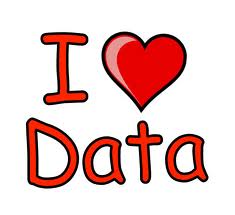 NEWS
NEWS
 NEWS
NEWS
 NEWS
NEWS
![]() If researchers at the University of California in San Francisco get their own way, that shiny smartphone you’re holding will become a new tool for medical research.
If researchers at the University of California in San Francisco get their own way, that shiny smartphone you’re holding will become a new tool for medical research.
Launched earlier this week, the new Health eHeart Study aims to sign up one million participants from around the world to use their smartphones to monitor their heart rates, pulse rates and blood pressure, submitting this data to the researchers via secure online portal. In turn, the researchers will be employing all kinds of fancy algorithms to crunch that data into something actionable that they hope, might just save some lives.
The goal of the project is simple enough – researchers want to gain a better understanding of heart disease, and the only way they can do so is through strength of numbers.
Jeffrey Olgin, lead researcher and chief of the UCSF Division of Cardiology in his spare time, says that the data is all about predicting where and when heart disease might strike:
“We hope to be able to collect copious amounts of data on a large segment of the population so we can develop very robust and accurate models to predict the occurrence of heart disease in people who don’t yet have heart disease, or slow the progression in people who already have heart disease.”
“Because these patients are connected to us electronically and through their smartphones, we can deploy the study very quickly.”
Heart disease remains one of the biggest killers in the US, claiming something in the region of 600,000 American lives each year – more than AIDS and cancer combined. Heart attacks occur at a rate of one every 34 seconds, killing one victim each minute. Moreover, an estimated 82 million Americans currently live with heart disease, costing the US health industry $110 billion per annum in medication, treatment, and time off work.
Olgin says that the study is essentially a continuation of the Framigham Heart Study, which tracked 5,209 volunteers in Framingham, Massachusetts over a period of several decades. Quite impressive when you consider that the study began back in 1948, and wasn’t wrapped up until the late 1960s, well before researchers had anything like the internet, smartphones or even desktops to aid their scientific studies. Ultimately, the Framingham Study led to several discoveries that these days, seem incredibly obvious. The findings taught us that things like smoking, obesity, and high blood pressure are all linked to heart disease, while the risk can be lessened by maintaining a high level of HDL cholesterol.
Now, with more than half of all mobile phones in the US being of the smartphone variety, researchers have decided it’s time to repeat that study and see what else they can learn about the disease. The Health eHeart study will incorporate free apps for subjects to download and monitor their health, social media channels, and twice yearly “eVisits” where participants will be able to check in with researchers. In addition, some subjects will also be given the chance to test out some wearable sensors that collect data on heart rate, blood pressure, activity levels, ECG, sleep and more.
Want to take part in the study? So long as you don’t have any history of cardiovascular disease, you can. Simply go to the Health eHeart website and complete the simple registration form with your basic details. They’ll ask you to sign an online consent form and fill out a couple of basic surveys, plus any additional opt-in ones that might appeal to you. But just beware that if you do sign up, you’re in it for the long haul – researchers are asking for participants to commit to at least ten years.
THANK YOU